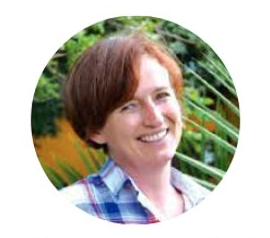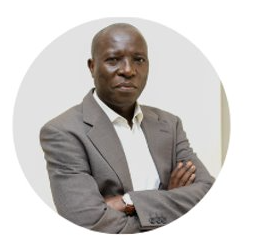Community philanthropy – people-led and people-centred approaches and models – is becoming all the more relevant against a backdrop of changing funding flows, and increasingly restrictive operating environments for civil society in many parts of the world. Community philanthropy organizations are championing new ways of deciding and doing that centre local agency, relationships and trust – transforming the sector from the bottom-up. This session explored the different models of doing development differently and what that looks like with regard to shrinking civic spaces and funding flows.
Moderated by Alliance magazine’s Regional Representative for Sub-Saharan Africa, Ese Emerhi. Speakers included:
- Graciela Hopstein, Executive Director, Rede Comuá, Brazil
- Barbara Nöst, Chief Executive Officer, ZGF, Zambia
- Moses Isooba, Executive Director, Uganda National NGO Forum, Uganda
A few highlights from the event
Graciela: Considering that Brazil is a country with huge inequalities and with an inconclusive democracy, from our point of view, community philanthropy can play a [STRATEGIC? 10:19] role. However, it’s important to highlight that philanthropy is a [COMPLEX? 10:25] space in which different actors and initiatives coexist. In fact there is no single philanthropy, but philanthropies, with an ’S’. Because it’s important to recognise the diversity of actors and dynamics in the field. Brazil has a developed and significant philanthropy ecosystem, represented mostly by corporate and family foundations. But it’s not a donor philanthropy, as they mainly operate in the [EXECUTION? 11:00] of their own projects. Although the amount of social investment from the private foundation is significant – around one billion dollars in 2020 – these resources do not reach civil society, and it’s not focused on social justice and community development agendas as an initiative.
 Barbara: We delved into integrating community-led development and community philanthropy in 2017, after we attended the Global Summit for Community Foundations in Johannesburg 2016. This was our lightbulb moment, where everything turned around at ZGF; we came back enlightened, we came back enraged, we came back encouraged, we came back as a new team of people that attended, and from this point our journey towards integrated community philanthropy started. So – how we do that in Zambia; we see ourselves as an organisation that facilitates process. We help communities we work with in identifying assets they have available. We help them in realising that the community assets actually exist. We help them in deciding how to use those resources to improve their own community, or design community projects they would like to work on.
Barbara: We delved into integrating community-led development and community philanthropy in 2017, after we attended the Global Summit for Community Foundations in Johannesburg 2016. This was our lightbulb moment, where everything turned around at ZGF; we came back enlightened, we came back enraged, we came back encouraged, we came back as a new team of people that attended, and from this point our journey towards integrated community philanthropy started. So – how we do that in Zambia; we see ourselves as an organisation that facilitates process. We help communities we work with in identifying assets they have available. We help them in realising that the community assets actually exist. We help them in deciding how to use those resources to improve their own community, or design community projects they would like to work on.
 Moses: In terms of the Ugandan National NGO Forum and the kind of work that we do, that is first of all to challenge the narrative around accountability. Because every time we talk about development, the way we understand it, and the way we talk about accountability, it takes us into the old narrative that when it comes to development, all that matters is money. And because that is all that matters, we have to be talking about accountability and that accountability is often upwards. But as we discuss this subject, I think it’s very important to understand communities. And every time you talk about community philanthropy, the key word there for me is “community”. Within communities, the communities themselves have assets. And what community philanthropy tries [to do] is [LIBERATE? 28:07] these assets.
Moses: In terms of the Ugandan National NGO Forum and the kind of work that we do, that is first of all to challenge the narrative around accountability. Because every time we talk about development, the way we understand it, and the way we talk about accountability, it takes us into the old narrative that when it comes to development, all that matters is money. And because that is all that matters, we have to be talking about accountability and that accountability is often upwards. But as we discuss this subject, I think it’s very important to understand communities. And every time you talk about community philanthropy, the key word there for me is “community”. Within communities, the communities themselves have assets. And what community philanthropy tries [to do] is [LIBERATE? 28:07] these assets.
You can watch the full video here:
Eleanor Margolis is a freelance journalist
Credit:Source link




